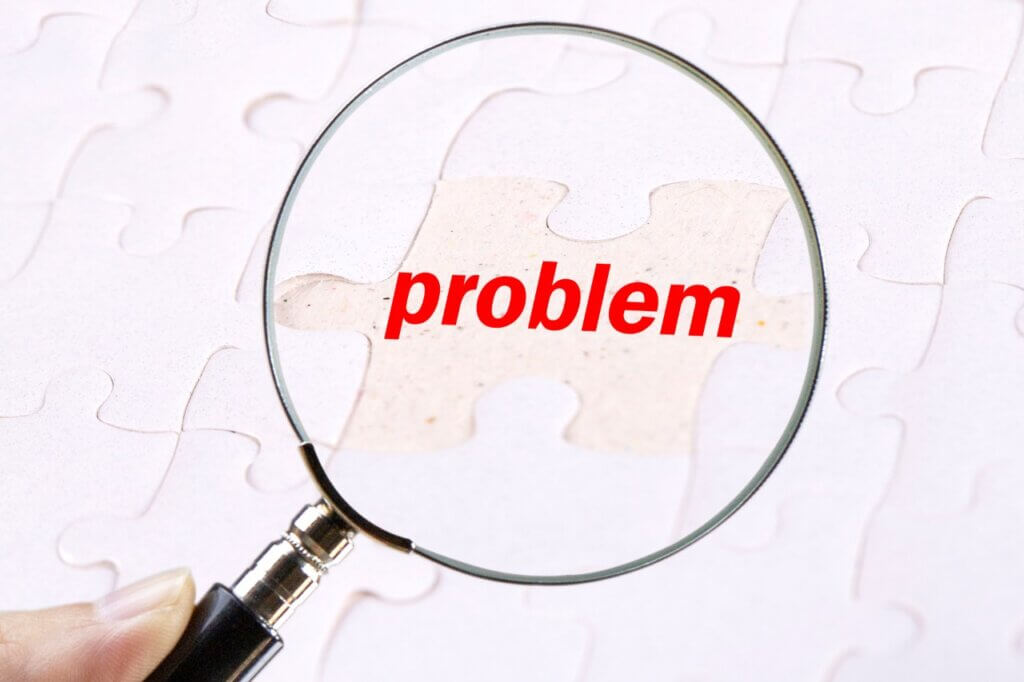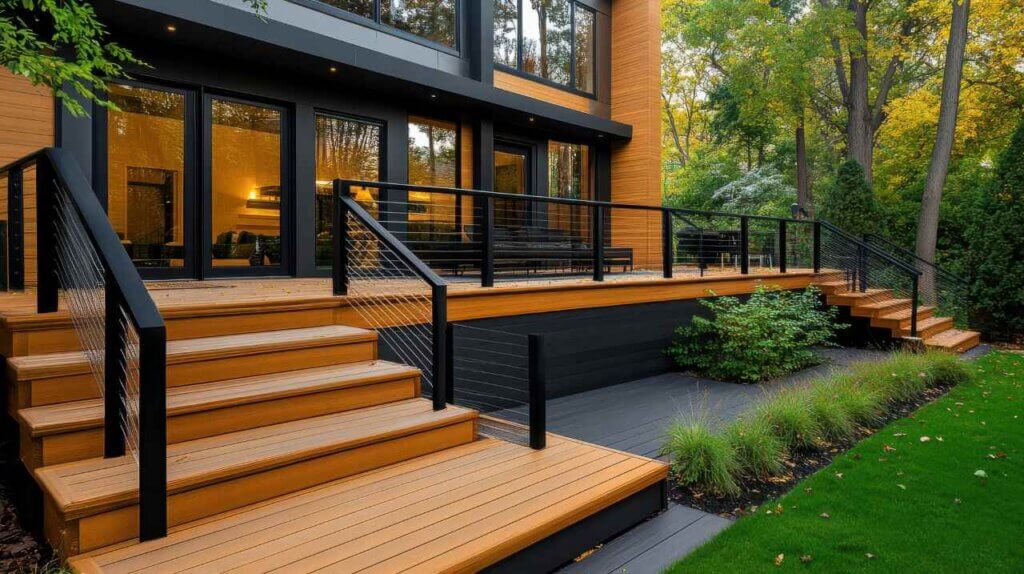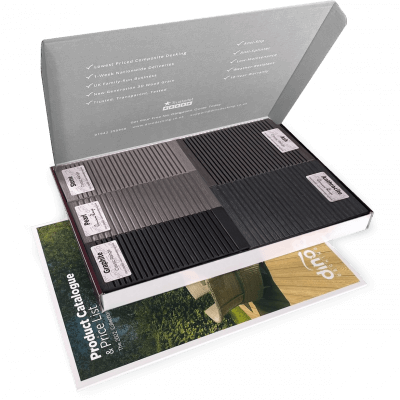5 Composite Decking Lighting Ideas
Our composite decking looks great in any setting, but you can really make your outdoor spaces shine with our decking
Products in Stock
Lowest Prices
Express Delivery
10-Year Warranty
Bank Holiday Weekend Sale. Up To 15% Off.

When you’re considering options for your outdoor space, you may be weighing up the pros and cons of different decking materials. PVC decking, also known as vinyl decking, is one popular choice. However, before you make a decision, it’s important to be aware of some common issues with PVC decking. In this post, we’ll take an honest look at the potential drawbacks to help you determine if PVC is the right fit for your garden.
One of the first things you’ll likely notice when researching PVC decking is the price tag. Compared to traditional wood decking, PVC tends to have a higher upfront cost. While proponents argue that the longevity and low maintenance requirements make up for this over time, the initial investment can be a barrier for many homeowners working with a tight budget.
Although PVC decking is marketed as being fade-resistant, the reality is that constant exposure to UV rays can take a toll. Over time, you may notice your pristine white or richly coloured PVC boards start to look a bit lacklustre. Certain PVC decking can also be prone to staining from spills, dirt, and debris.
PVC is a relatively soft material, which means it can be more prone to surface scratches and dents compared to harder woods or composite decking. If you have an active family or pets, or plan to regularly move furniture around on your deck, those marks can quickly accumulate and detract from the overall appearance.
UK weather can be unpredictable, with fluctuating temperatures throughout the year. PVC decking is especially susceptible to expanding in the heat and contracting in the cold. This constant movement can lead to warping, buckling, or gaps forming between the boards over time, compromising the stability and aesthetics of your deck.
If you’re used to the sure footing of a wood deck, PVC might come as a surprise. When wet from rain or morning dew, PVC decking can become quite slick, posing a potential safety hazard. If you have young children or elderly family members using your outdoor space, this is definitely something to keep in mind.
As homeowners become increasingly eco-conscious, the sustainability of building materials is an important factor. Unfortunately, PVC decking falls short in this area. The manufacturing process for PVC involves the use of fossil fuels and the release of harmful toxins. Additionally, the durability of PVC means that boards will likely end up in landfill once they’re no longer usable.
Following on from the previous point, PVC decking is notoriously difficult to recycle. Many recycling centres simply don’t accept PVC building materials. So even if you’re committed to responsible disposal at the end of your deck’s lifespan, there may be limited options available.
While PVC decking is often touted as being low maintenance, the flipside is that it can be tricky to repair when damage does occur. Unlike wood, which can be sanded and refinished, PVC that is scratched, dented, or stained often needs to be completely replaced. Depending on the age of your deck, it can also be challenging to find boards that are an exact match to seamlessly blend in repairs.
To keep PVC decking looking its best, regular cleaning is essential. However, you can’t just scrub it down with any old brush and detergent. PVC manufacturers often recommend specific cleaners and techniques to avoid damaging the surface. This means potentially investing in special products and being extra cautious with your cleaning routine.

If you’re looking for a low-maintenance option that offers better durability and slip resistance than PVC, composite decking is worth considering.
Made from a blend of wood fibres and recycled plastics, composite boards provide the natural look of wood without the hassle. You can order high quality composite decking in the UK from us at Dino Decking for a convenient solution – we’ll even send you a free sample first, free of charge.
Of course, there’s always the classic choice of natural wood decking. While it does require more upkeep in terms of staining and sealing, many homeowners feel it’s worth it for the timeless beauty and renewability of real wood. Sustainably sourced options like FSC-certified lumber are also available.
Ultimately, deciding on a decking material comes down to your individual priorities and circumstances. If you’re willing to pay a bit more upfront for a deck that’s very low maintenance and aren’t too concerned about sustainability or slip resistance, PVC could still be a contender.
There are some scenarios where PVC decking might be the most practical option. For instance, if you have a pool deck or live in an area that experiences a lot of wet weather, you may appreciate that PVC dries quickly and resists mould and mildew growth more readily than wood.
We hope this overview of potential issues with PVC decking has given you a more complete picture to guide your decision making. Remember, your deck is an extension of your home and a space for making memories with loved ones. Taking the time to carefully weigh the pros and cons of different materials can help ensure you end up with a deck that serves your family well for years to come. Still unsure about what decking to choose? Compare PVC and composite decking to explore which might better suit your needs.

Our sample pack contains a sample piece of each colour currently available. Order your free sample pack today to compare the colours and get a true feeling of the Dino Decking range!
Our composite decking looks great in any setting, but you can really make your outdoor spaces shine with our decking
If the idea of having rats under your decking makes you shiver, don’t worry. We’ll let you know the signs
Business hours
Monday: 09:00 – 17:30
Tuesday: 09:00 – 17:30
Wednesday: 09:00 – 17:30
Thursday: 09:00 – 17:30
Friday: 09:00 – 17:30
Saturday: Closed
Sunday: Closed
Contact us
01942 355968
support@dino.co.uk
Collection Address: Unit 1 Wetheral Close Hindley Ind Estate Wigan Greater Manchester North West WN2 4HS
Pages
Products
Testing
Copyright 2025 Dino Decking Ltd All Rights Reserved.
VAT Number: GB296097848.
Company Number: 10837233.